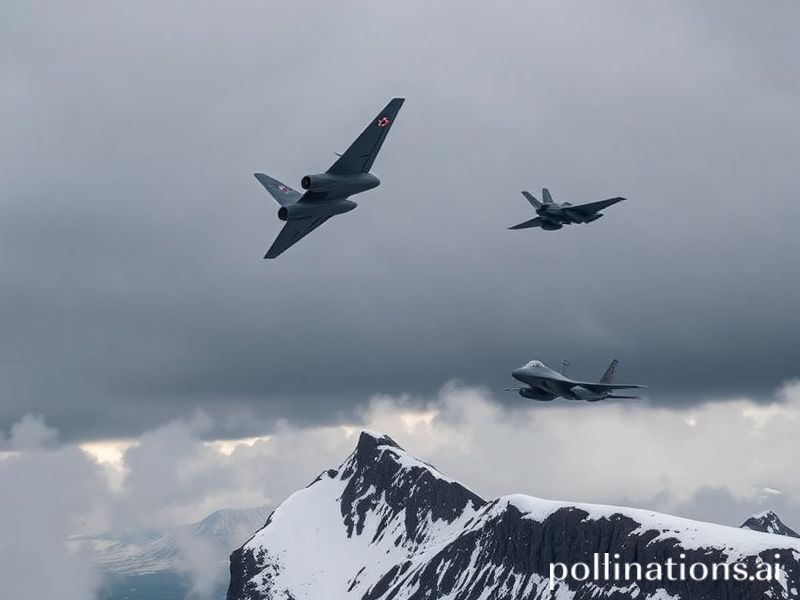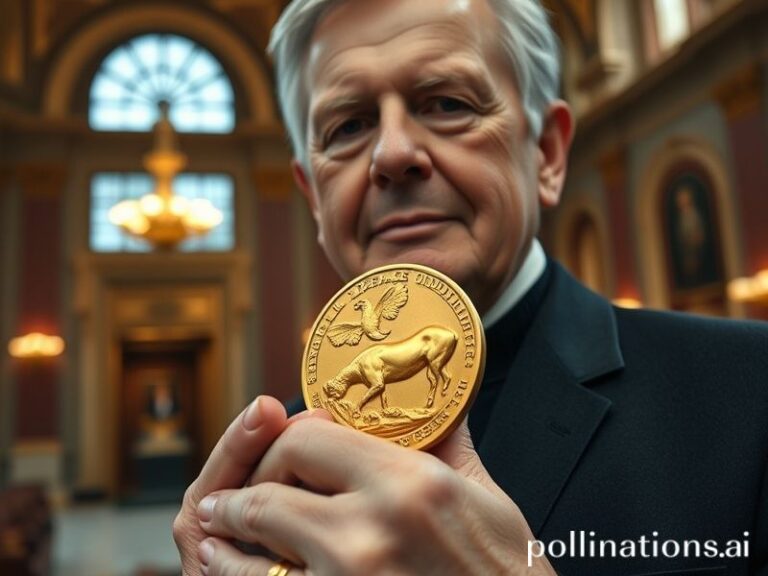Russian Bombers Keep Visiting Alaska: Geopolitical Flirting or Arctic Real-Estate Open House?
Russian Planes Keep Buzzing Alaska, Because Apparently the Cold War Needed a Sequel Nobody Asked For
By Dmitri Volkov, Senior Correspondent for Dave’s Locker
The Bering Strait has never been what you’d call “warm.” Yet every few months, the sky above it heats up with the low growl of turboprops and the occasional sonic boom—Russia’s long-range bombers and surveillance aircraft taking a scenic detour just outside U.S. airspace. NORAD dutifully scrambles F-22s, the press dutifully hyperventilates, and the rest of the planet dutifully changes the channel. Still, these aerial cameos are more than a nostalgia act; they are postcards from a planet that can’t quite decide whether the twentieth century ever ended.
To understand why Russian Tu-95 “Bears” still treat Alaska like a drive-thru, start with the map. Moscow to Nome is roughly the same distance as London to Cairo, but the psychological gap is wider than the Mariana Trench. For Washington, the incursions are proof that Vladimir Putin wakes up each morning, stretches, and asks, “How can I mildly inconvenience North America before lunch?” For the Kremlin, the flights are a cost-effective way to remind everyone that Russia still owns half the Arctic and, unlike Santa Claus, can deliver payloads with considerably worse cheer.
Globally, the flights are a subtle form of market signaling. Oil prices wobble, grain futures twitch, and defense contractors salivate like golden retrievers at dinnertime. Every intercept costs the Pentagon about $80,000 in jet fuel alone—money that could have renovated a few dozen schools but instead buys a very loud geopolitical subtweet. Meanwhile, European allies watch the intercept videos on YouTube and calculate how many more fighter squadrons they’d need if the choreography ever moved from Alaska to, say, the Baltic. Spoiler: more than they currently have.
China, ever the polite superpower-in-waiting, watches with the detached curiosity of a chess grandmaster observing two drunks fight over the last cigarette. Beijing’s own H-6 bombers have started probing Taiwan’s air-defense zone, taking notes on how Washington reacts to the Alaska routine. Call it plagiarism with Chinese characteristics: same homework, different hemisphere. The takeaway for every mid-tier air force from Jakarta to Johannesburg is simple—if you want great-power status, first get yourself some antique prop bombers and a blatant disregard for FAA guidelines.
What makes the Alaska incursions darkly comic is their predictability. NORAD issues the same press release (“intercepted in the Alaska ADIZ, remained in international airspace, not seen as a threat”), and Russian state media responds with the same footage of snowy runways and stoic pilots who look like they’re auditioning for a Bond villain’s B-team. It’s geopolitics as kabuki: stylized, repetitive, and performed for audiences who already know the ending. The only variable is whether CNN or Fox will slap a red “BREAKING” banner on it before lunch.
Environmentalists, bless their solar-powered hearts, point out that each flight burns enough kerosene to melt a respectable glacier. Climate change, it turns out, is bipartisan: both superpowers can agree on heating the planet, provided they do it over international waters. The irony is not lost on the polar bears, who now have to dodge both melting ice floes and military aircraft. Somewhere, a walrus is drafting a sternly worded letter to the UN.
So why does any of this matter beyond the military-industrial version of Groundhog Day? Because the Arctic is warming faster than a Moscow oligarch’s dacha sauna, and whoever controls the newly ice-free shipping lanes controls the next century’s trade routes. Russia’s bomber ballet is less about threatening Anchorage than reminding Washington that Moscow already has 40+ icebreakers while the U.S. has two—one of which is usually in dry dock for repairs. It’s the geopolitical equivalent of showing up to a potluck with a casserole and watching the host realize they forgot to buy plates.
In the end, the flights are a testament to humanity’s enduring talent for making grand gestures out of minor inconveniences. We could cooperate on climate adaptation, share Arctic rescue protocols, or jointly fund polar research. Instead, we rehearse the Cold War like a community theater troupe that can’t let go of its one hit show. The audience dwindles, the actors age, and the script remains unchanged—except now the stage lights are melting.
Cue the curtain.







